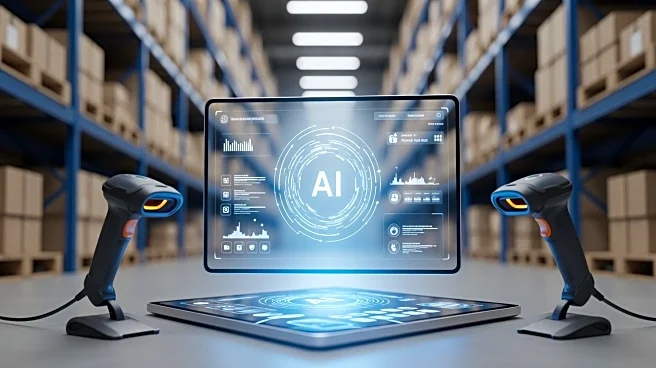What's Happening?
Honeywell has launched new AI capabilities and mobile computing tools aimed at transforming workforce productivity in retail, logistics, transportation, and warehousing industries. The innovations include
enhancements to Honeywell's AI assistant for mobile computing platforms and the introduction of the rugged CT70 handheld computer. These tools are designed to improve real-time decision-making, task accuracy, and operational efficiency. The AI assistant offers features such as inventory search and product identification, while the CT70 mobile computer provides advanced connectivity and real-time data access, empowering workers to make informed decisions instantly.
Why It's Important?
The introduction of AI tools by Honeywell is significant for industries reliant on frontline workers, as it enhances efficiency, speed, and accuracy across the supply chain. By integrating AI, machine vision, and high-speed connectivity into mobile devices, Honeywell is reshaping how workers interact with technology, reducing operational errors and delays. These advancements are expected to improve inventory and product handling, enabling smarter decision-making with real-time data. The CT70 mobile computer's rugged design and advanced features make it suitable for high-demand environments, further supporting workforce productivity.
What's Next?
Honeywell's AI and mobile computing innovations are set to continue evolving, with anticipated support for RAIN RFID in early 2026 to enhance item-level tracking and visibility. The integration of AI and automation in workforce tools is likely to expand, driving further improvements in operational efficiency and accuracy. As these technologies become more widespread, industries may see increased adoption of AI-driven solutions, leading to a more connected and efficient supply chain.
Beyond the Headlines
The deployment of AI tools in workforce environments also presents challenges related to data security and privacy. As companies increasingly rely on AI for decision-making, there will be a need for robust data protection measures to safeguard sensitive information. Additionally, the shift towards automation may impact traditional roles, requiring workforce adaptation and retraining to ensure employees can effectively utilize new technologies.











